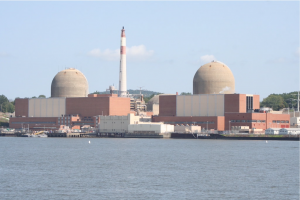 November 2, 2021
by Steve Brenner
Climate change
Energy
Fossil Fuels
State and Local
November 2, 2021
by Steve Brenner
Climate change
Energy
Fossil Fuels
State and Local
On October 27, 2021, the New York State Department of Environmental Conservation (NYSDEC) denied two applications for proposed natural gas-fired power plants.[1] New York State has denied permit applications for fossil fuel infrastructure before,[2] but…
 October 19, 2021
by Jaclyn Lee
Energy
Renewable Energy
State and Local
October 19, 2021
by Jaclyn Lee
Energy
Renewable Energy
State and Local
In September 2021, the California Public Utilities Commission (CPUC) began its highly anticipated proceeding to reevaluate the state’s net energy metering successor (NEM 2.0) tariff. Expected no later than January 2022, the decision from the national leader in solar electricity production could have far-reaching impacts on the future of customer-owned solar generation and battery storage.
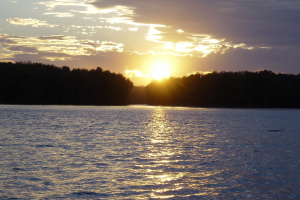 April 15, 2021
by Myles Douglas Young
Litigation
Natural Resources
Public Lands
State and Local
April 15, 2021
by Myles Douglas Young
Litigation
Natural Resources
Public Lands
State and Local
The utilization of the Public Trust Doctrine in litigations is often premised on its supposed ancient Roman pedigree. This article explores the origins of the doctrine and finds that, in fact, the ancient doctrine was quite different from the one we see in the United States today. What errors do scholars make, and what do those errors mean for the survival of the modern doctrine?
By Myles Douglas Young, Administrative Editor
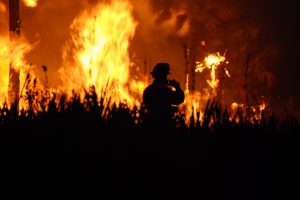 March 31, 2021
by Alec Williams
Air
Climate change
Litigation
Public Lands
State and Local
March 31, 2021
by Alec Williams
Air
Climate change
Litigation
Public Lands
State and Local
After a record-breaking wildfire season in 2020, lawsuits are likely to flood the dockets of federal and state courts across the United States. Wildfire liability determinations at either level can be complex, typically implicating many parties and exorbitant damage awards. However, in light of the projected impact of climate change on wildfire frequency and severity, such lawsuits may become increasingly commonplace.
By Alec Williams, Managing Editor
 December 1, 2020
by Alexander Collingsworth
State and Local
Water
December 1, 2020
by Alexander Collingsworth
State and Local
Water
Residents of Flint, Michigan will likely receive some compensation soon for the poisoning of their drinking water. In August, the state of Michigan settled claims against it and Michigan officials, including former Governor Rick Snyder, for $600 million. What are the implications of the Michigan Supreme Court decision that opened the way for this settlement? And how much money are individual residents likely to see?
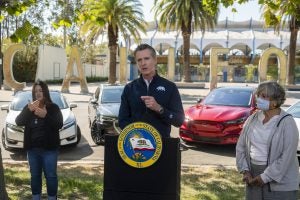 October 20, 2020
by Camden Douglas
Air
Climate change
Fossil Fuels
Regulations
State and Local
October 20, 2020
by Camden Douglas
Air
Climate change
Fossil Fuels
Regulations
State and Local
On September 23, 2020, California Governor Gavin Newson issued an executive order[1] that is expected to reduce the impact of climate change by drastically transforming the State's transportation industry. California experiences many unique climate change-related problems. For instance, as a result of climate change, the duration of California's wildfire season has more than doubled since 1980.[2] Indeed, this year, California is experiencing a record-breaking burn,[3] with wildfires scorching millions of acres of land.[4] The executive order, in an attempt to attenuate some of these climate change-related impacts on the State, requires all new passenger vehicles sold in California to be zero-emission by 2035, effectively banning the sale of new gasoline-powered vehicles in just fifteen years.[5]
 March 4, 2020
by Joseph Nelson
Agriculture
State and Local
March 4, 2020
by Joseph Nelson
Agriculture
State and Local
Food Freedom Laws can help us positively reorder our relationships with our food, our neighbors, and the Earth we share.
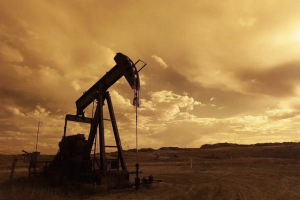 February 26, 2020
by Gabriel Dowdell
Fossil Fuels
Oil and Gas
Regulations
State and Local
Water
February 26, 2020
by Gabriel Dowdell
Fossil Fuels
Oil and Gas
Regulations
State and Local
Water
Should the EPA regulate fracking more heavily? Currently, states that benefit financially from fracking regulate the industry.
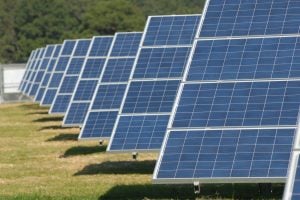 February 13, 2020
by Kayla Steinberg
Agriculture
Litigation
Renewable Energy
State and Local
February 13, 2020
by Kayla Steinberg
Agriculture
Litigation
Renewable Energy
State and Local
In July 2019, the Maryland Court of Appeals ruled that the state’s Public Service Commission has the final say on the siting of solar and wind energy projects, prompting concerns by local governments over how to protect farmland from development.
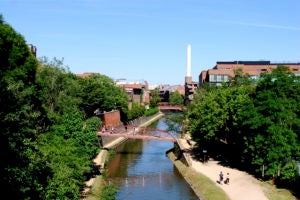 April 26, 2019
by Ilse P. Johnson
State and Local
April 26, 2019
by Ilse P. Johnson
State and Local
Whether a project is one of “special merit” is often a “tug of war” among preservationists, developers, neighbors, and the community-at-large. One way to tug towards special merit status is to incorporate eco-friendly features into the new development.











